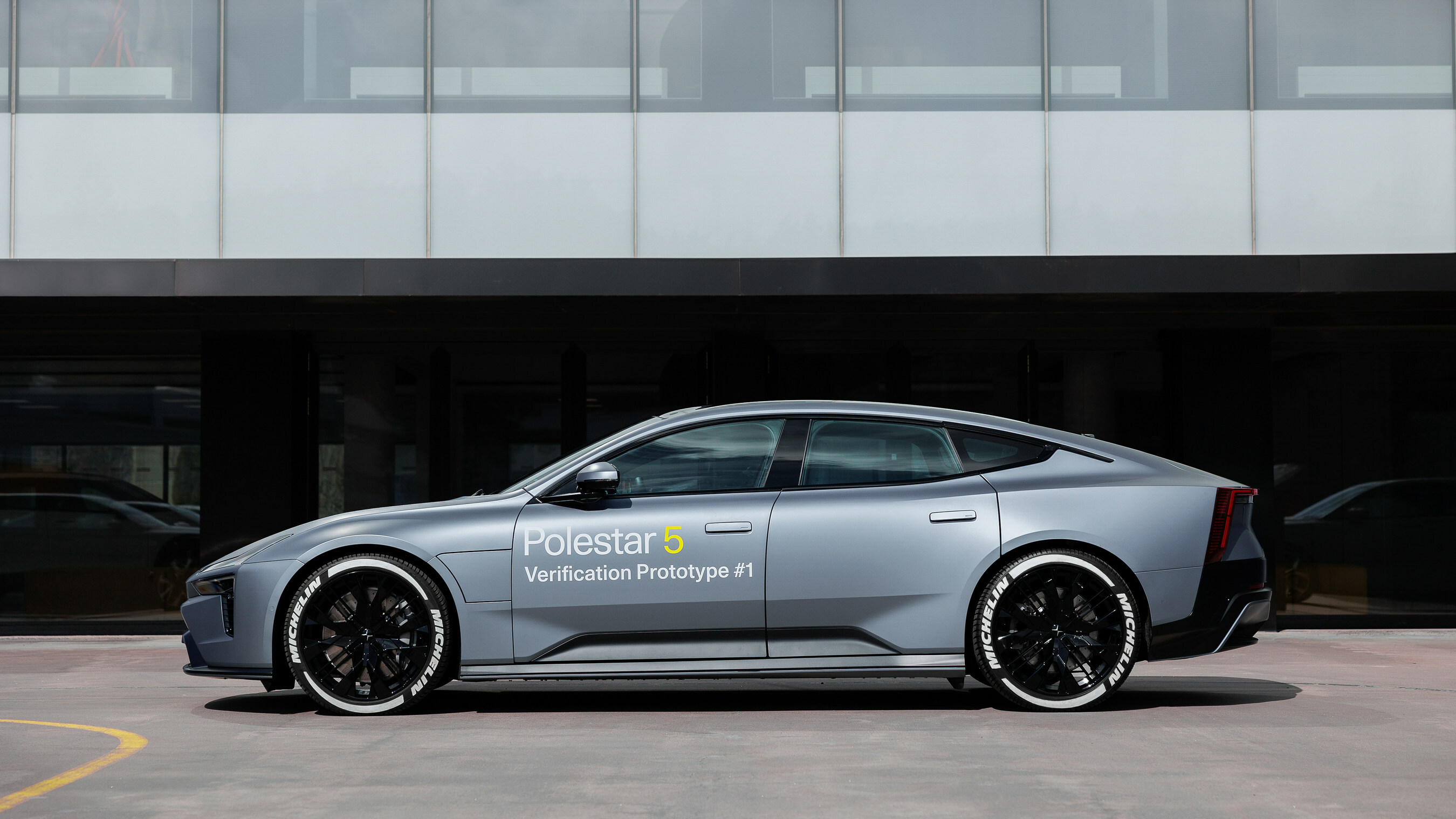WORLD'S FIRST ELECTRIC VEHICLE 10-MINUTE CHARGE WITH SI-DOMINANT CELLS
StoreDot, the pioneer and world leader in extreme fast charging (XFC) battery technology for electric vehicles, and Polestar, the Swedish electric performance car brand, today revealed a groundbreaking milestone by demonstrating pioneering battery technology that charges an electric vehicle in just 10 minutes.

In the demo video seen here the companies successfully charged a 77kWh battery pack powered by StoreDot's extreme fast charging high energy (300Wh/kg) silicon-dominant battery cells, installed in a fully driveable verification Polestar 5 prototype, from 10% to 80% in under 10 minutes.
The vehicle saw a consistent charge rate of over 310kW for the entire test procedure and a peak of more than 370kW. All cell parameters including temperature, voltage and charged capacity were monitored throughout, with the battery pack never exceeding the target operating temperature set by engineers of both teams.
The demo showcases StoreDot's 'drop-in' ability to be integrated in an existing car model. It also paves the way to extreme fast charging a car using available charging infrastructure, rather than using proprietary chargers.
This world first demonstration featuring a 10-minute charge with silicon-dominant battery cells in an electric vehicle showcased unprecedented charging speeds that will eliminate consumer charging anxiety, a major obstacle to widespread EV adoption.
A key advantage of the silicon-based anode technology is the ability to continue pushing both energy density and charging rate boundaries for several more battery generations. In contrast, conventional graphite anodes are already approaching their theoretical performance limits, restricting further advancements. StoreDot's silicon design provides a crucial pathway to sustained innovation in areas like extreme fast charging.
The breakthrough was enabled by StoreDot's advanced XFC battery cells and represents another major milestone on the company's path toward commercialization, proving the maturity, stability, and durability of its game-changing technology, while paving the way for an industry-wide XFC battery adoption.
Dr Doron Myersdorf, CEO of StoreDot:
Thomas Ingenlath, CEO of Polestar:
In January StoreDot announced its anticipated milestones for 2024, one of which was today's demonstration. Other upcoming milestones include shipping prismatic B-samples to OEMs and signing strategic manufacturing agreements.
StoreDot remains firmly on track with production-readiness of its XFC cells that deliver 100 miles charged in 5 minutes this year. The company aims to deliver 100 miles charged in 4 minutes in 2026 and 100 miles charged in 3 minutes by 2028.
SOURCE StoreDot

In the demo video seen here the companies successfully charged a 77kWh battery pack powered by StoreDot's extreme fast charging high energy (300Wh/kg) silicon-dominant battery cells, installed in a fully driveable verification Polestar 5 prototype, from 10% to 80% in under 10 minutes.
The vehicle saw a consistent charge rate of over 310kW for the entire test procedure and a peak of more than 370kW. All cell parameters including temperature, voltage and charged capacity were monitored throughout, with the battery pack never exceeding the target operating temperature set by engineers of both teams.
The demo showcases StoreDot's 'drop-in' ability to be integrated in an existing car model. It also paves the way to extreme fast charging a car using available charging infrastructure, rather than using proprietary chargers.
This world first demonstration featuring a 10-minute charge with silicon-dominant battery cells in an electric vehicle showcased unprecedented charging speeds that will eliminate consumer charging anxiety, a major obstacle to widespread EV adoption.
A key advantage of the silicon-based anode technology is the ability to continue pushing both energy density and charging rate boundaries for several more battery generations. In contrast, conventional graphite anodes are already approaching their theoretical performance limits, restricting further advancements. StoreDot's silicon design provides a crucial pathway to sustained innovation in areas like extreme fast charging.
The breakthrough was enabled by StoreDot's advanced XFC battery cells and represents another major milestone on the company's path toward commercialization, proving the maturity, stability, and durability of its game-changing technology, while paving the way for an industry-wide XFC battery adoption.
Dr Doron Myersdorf, CEO of StoreDot:
"We are very excited to share this impressive achievement today and are proud to be on this journey with Polestar, a leading car brand who envisions high performance cars with a sustainable future. We're happy to see our partner is among the first EV car makers to acknowledge that XFC is now a necessary standard to make vast EV adoption a reality. With our extreme fast charging technology, you can add 200 miles in under 10 minutes. This breakthrough revolutionizes EV ownership experience by eradicating the barrier of range and charging anxiety once and for all. Drivers can now truly travel long distances with the same freedom and convenience as traditional petrol-powered vehicles."
Thomas Ingenlath, CEO of Polestar:
"By eliminating charging times that were previously an obstacle, StoreDot's XFC battery cells combined with our cutting-edge product development and battery engineering have unlocked new frontiers for electric mobility. This technology will reshape consumer expectations and accelerate mass EV adoption by making EV ownership a seamless experience for the mass market."
In January StoreDot announced its anticipated milestones for 2024, one of which was today's demonstration. Other upcoming milestones include shipping prismatic B-samples to OEMs and signing strategic manufacturing agreements.
StoreDot remains firmly on track with production-readiness of its XFC cells that deliver 100 miles charged in 5 minutes this year. The company aims to deliver 100 miles charged in 4 minutes in 2026 and 100 miles charged in 3 minutes by 2028.
SOURCE StoreDot








No comments: